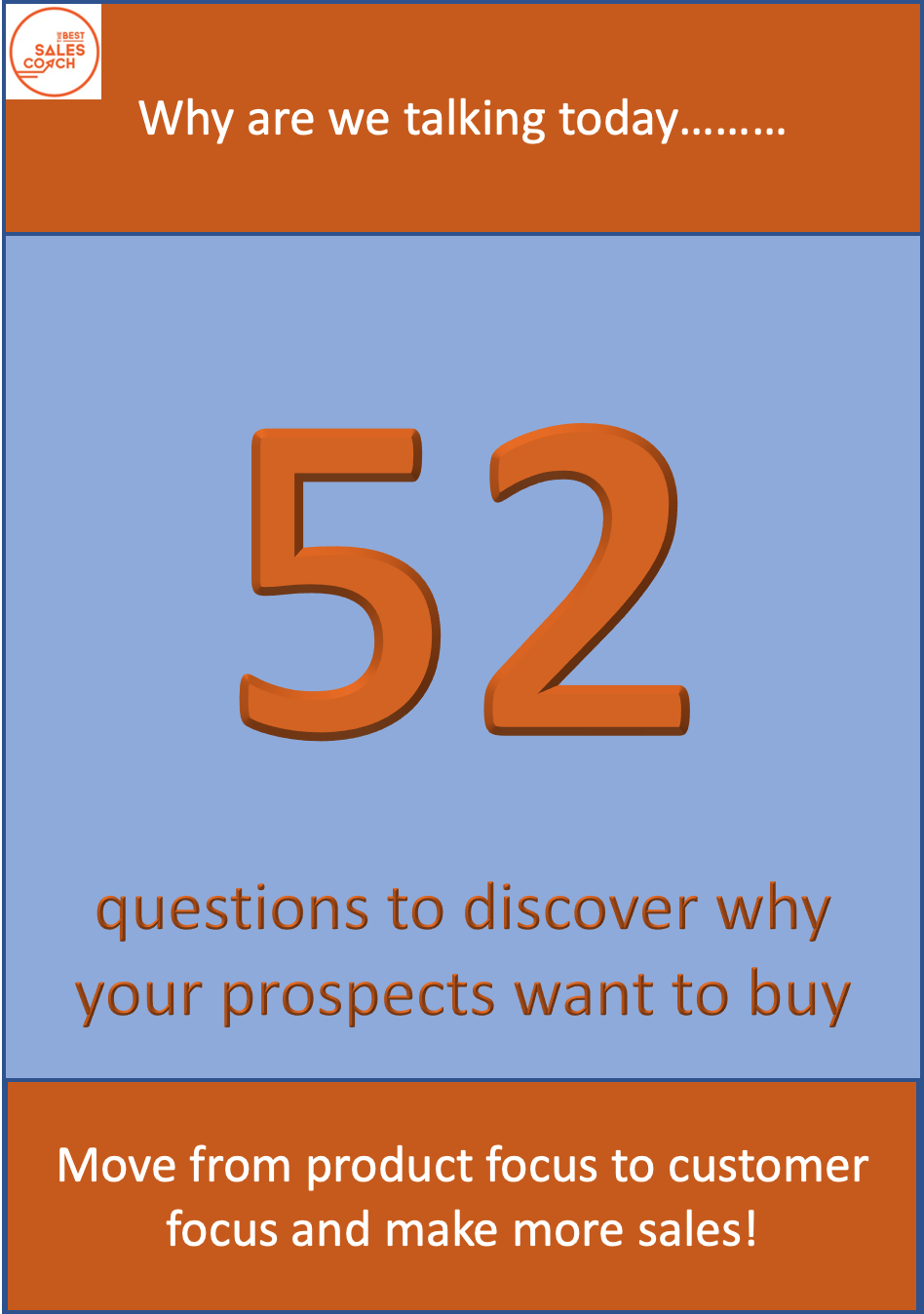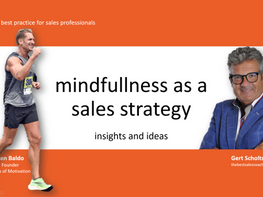

The best sales information is securely locked in our customer’s head. They have their own reasons for buying. Our job is to discover these reasons. Unlock your sales potential by asking customer’s killer sales questions. It will improve win rates immediately. Asking great sales questions are key to successful selling.
Business customers may be unwilling to share their reasons for buying due to a variety of factors. They may want to protect their competitive advantage, maintain their privacy, or avoid disclosing confidential information. Additionally, they may fear that sharing the reasons for their purchase could lead to increased competition or higher prices.
In addition, building trust is a key component in any business relationship, and even more so in b2b sales questions. When a business is considering making a purchase from another business, trust is essential in order for the transaction to go through.
Without trust, the customer may be hesitant to move forward, as they may not be sure that the product or service will be delivered as promised. Trust enables the customer to have confidence that the vendor will honour the terms of the agreement and follow through on their commitments. Trust also helps to foster positive relationships between the customer and vendor, leading to repeat business and referrals.
Ultimately, trust is an important factor in the B2B sales process, as it allows the customer to feel secure in the knowledge that their purchase is in good hands.
Here are 52 questions that will build trust and uncover the real reasons why customers need and want a better solution. Some are open-ended whilst others are closed and probing.
- What triggered your enquiry?
- Why are you interested in solving the issue now?
- What do you see as the best possible outcome?
- Can you tell me more about your role at the company?
- Why do customers buy your products?
- What is different about your organisation compared to your competition?
- Where does our product/service fit with your role?
- What goals are you responsible for?
- What are the key business priorities this year?
- Why are these important ?
- Can you walk me through the current process?
- What is the most critical stage in that process?
- What specific problems are you trying to solve?
- What is causing the current challenges ?
- How are customers affected by the problem?
- How are the team affected by the challenge?
- How is the problem affecting profitability?
- Why has the business not been able to address this problem before now?
- What are the knock-on effects if you don’t solve this problem?
- How do these knock-on effects impact you personally?
- What would it mean for you personally if you managed to solve these problems?
- In an ideal world, what would you want to be doing?
- What other solutions or products have you looked at?
- What did you like about those other solutions?
- What is missing from the other proposed solutions?
- What is a ‘must-have’ in a solution?
- How will your team would respond to this solution?
- What does success look like in the first 6 months/years?
- If I could demonstrate how we could help you address this challenge, how much of a favourable position would that put us in?
- If you don’t go ahead with implementing a solution like ours, is ‘doing nothing’ a feasible solution?
- On a priority list, where would this be positioned ?
- What does the decision making process look like when buying solutions like this?
- Who else is this important to?
- Who would be the person who signs the PO?
- What concerns do you feel the person who signs the PO would have about this?
- Would it make sense to involve the person who signs the PO in our conversations?
- Who else would find it useful to be part of our conversations?
- How will this solution be funded?
- Is there a budget for this?
- Do you have the final say on spending that budget?
- Other than price, what will be the main criteria in making a decision?
- You mentioned you weren’t having a good experience with your current supplier. What do you hope we will do differently should we work together?
- If you didn’t feel we were the right solution for you, are you happy to be transparent and tell me?
- When would you want to make a decision by?
- When does the business need to have a solution in place?
- Would you see a proof of concept or a trial appropriate?
- What do you foresee as the potential blocks and hurdles we will face along the way in partnering with you?
- How can we anticipate these blocks from your perspective?
- Is this decision a local one or does it need a national approval?
- What do you see as the next steps?
- Would you mind if I recapped our conversation so far?
- Do we need to include anyone else at this stage?
Asking a customer questions is an important part of B2B sales because it allows the salesperson to gain insight into the customer’s needs and objectives. Asking questions gives the salesperson an opportunity to learn more about the customer’s business, industry, and challenges, which can then be used to tailor a solution to meet the customer’s needs. Asking questions is also a way to build rapport and trust between the salesperson and the customer, which is essential for a successful sale.
Try some of these 52 questions during your next sales meeting and experience the difference in rapport, trust and customer commitment to proceed.



